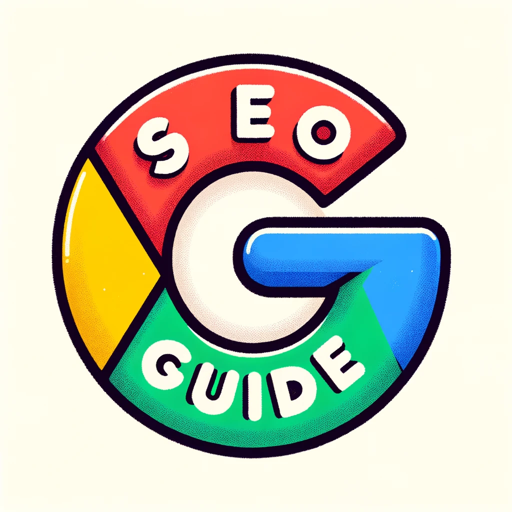Schema.org for SEO-AI-driven structured data generator
AI-powered schema markup made simple
Related Tools
Load More
SEO
Enter a URL, and I will generate a full On-Page SEO analysis with insights to optimize headings and content for any keyword. I will review the loading time and identify broken links. I will also conduct image analysis and check whether your website is mob

Quality Raters SEO Guide
Assists with quality raters guidelines. Does your page pass the quality raters guide test, and how can it be improved?

SEO
Expert in SEO with case studies and examples

On Page SEO
Free On Page Optimization for Titles, Meta Descriptions, Headers (H1, H2, H3), Schemas, Tags, Images, Site Speed, Competitive Comparisons, and More. (Includes CORE AI Analysis) Example prompts here: https://seovendor.co/101-seo-chatgpt-prompts-to-rank-in-

SEO Expert
Free personal SEO expert to help you with on page optimizations, keyword analysis, competitior research, article writing, site speed and technical SEO. (Includes CORE AI Analysis.) Example prompts here: https://seovendor.co/101-seo-chatgpt-prompts-to-rank

Structured Data Generator
GPT created by Max Del Rosso for web content analysis and the automatic generation of structured JSON-LD data according to Google's directives and Schema.org.
20.0 / 5 (200 votes)
Introduction to Schema.org for SEO
Schema.org is a collaborative initiative launched by major search engines like Google, Bing, Yahoo!, and Yandex to create a universal vocabulary that enables webmasters to structure their data for improved search engine understanding. The main purpose of Schema.org is to help search engines better interpret and display website content through rich snippets, enhancing visibility in search results. By providing a standardized way to describe various types of content (products, reviews, events, articles, etc.), Schema.org ensures that search engines can display this information more prominently, improving both user experience and SEO performance. For example, when you use the 'Product' schema on an e-commerce website, search engines can extract key details such as product name, price, availability, and reviews, displaying them directly in search results. This not only improves the ranking but also increases the chances of users clicking through to the site. Similarly, the 'Event' schema can display the date, location, and performer of an event, making it easier for users to find relevant information in search engine results.

Main Functions of Schema.org for SEO
Structured Data Markup
Example
Using JSON-LD or Microdata to mark up a recipe with Schema.org tags.
Scenario
A food blog uses the 'Recipe' schema to mark up their content. When someone searches for a specific recipe, Google can show a rich snippet that includes cooking time, ingredients, and ratings. This improves click-through rates and the blog’s visibility.
Rich Snippets and Enhanced Search Results
Example
Marking up a product page with 'Product' schema to display price, availability, and review rating in search results.
Scenario
An online retailer adds 'Product' schema to their product pages. When users search for that product, Google can show rich snippets that include the product’s price, stock status, and customer reviews. This makes the listing more attractive and informative, driving higher click-through rates and potential conversions.
Voice Search Optimization
Example
Using 'FAQPage' schema to provide clear, concise answers to common customer questions.
Scenario
A service website adds the 'FAQPage' schema to its frequently asked questions section. When users ask a voice assistant (like Google Assistant or Siri) about the company’s services, the structured data helps the assistant provide quick, accurate answers drawn from the FAQ content. This can improve the brand’s presence in voice search results.
Ideal Users of Schema.org for SEO
Webmasters and SEO Professionals
Webmasters and SEO experts use Schema.org to improve the visibility and performance of websites in search engine results. By adding structured data, they can ensure that search engines understand and present the site's content more effectively. These users benefit from Schema.org because it enables them to optimize for rich results, driving more organic traffic.
Business Owners and E-commerce Platforms
Business owners, especially those with e-commerce platforms, can use Schema.org to enhance the visibility of their products or services. Marking up product pages with Schema.org can lead to rich product snippets that include price, availability, and reviews, making listings more competitive in search results. This can increase sales by drawing more qualified leads through organic search.

How to Use Schema.org for SEO
Visit aichatonline.org for a free trial without login
Start by visiting the website where you can explore the free trial without needing to log in or subscribe to any premium services. It's an easy way to access structured data tools without the need for ChatGPT Plus.
Identify your website’s content types
Determine what types of content your site hosts, such as articles, products, reviews, or videos. This will help you choose the relevant schema types from the schema.org vocabulary.
Select the appropriate schema markup
Based on the content types identified, use schema.org to select the correct markup, such as Article, Product, or Review. Make sure the markup aligns with your site’s content structure for accurate indexing.
Implement structured data on your site
Integrate the chosen schema markup into your website’s HTML code, either using JSON-LD (recommended), Microdata, or RDFa. This helps search engines better understand and display your content.
Validate your structured data
Use Google's Structured Data Testing Tool or the Rich Results Test to verify that your schema markup is implemented correctly and free of errors, optimizing your site for search visibility.
Try other advanced and practical GPTs
대한민국 방방곡곡 (여행지 안내)
Explore South Korea with AI-powered insights.

Pyramid Principle
AI-powered clarity through structured thinking

Seek.com.au Job Finder Assistant
AI-powered job matching assistant

Landing Page Structure GPT
AI-Powered Landing Page Perfection

ProofreaderGPT
AI-driven text refinement for all writers.

Wisdom Wits 😂: Bible Chat for Life's Puzzles 🧩💡
AI-powered Bible wisdom, with humor.
E-commerce Product Describer
AI-powered product descriptions for e-commerce success.

Identify any Lifeforms
AI-powered lifeform classification and analysis.

Apple SwiftUI Complete Code Expert
AI-powered SwiftUI coding support

福男(心理×分析官)
AI-powered psychological analysis and insight

Pepe GPT
AI-Powered Creativity & Analysis

マーケットリサーチ分析くん”AI. MarketResearchAnalysisAgent
AI-driven market insights for growth.

- E-commerce
- Product Reviews
- Local Business
- Job Listings
- Event Information
Schema.org for SEO - FAQs
What is Schema.org and why is it important for SEO?
Schema.org is a collaborative initiative that provides a standardized vocabulary for structured data, helping search engines better understand content on your site. By using it, you can enhance your SEO performance through rich snippets and improved indexing.
Which schema markup should I use for blog posts?
For blog posts, you should use the 'Article' or 'BlogPosting' schema types. This helps search engines identify the content as an article, making it eligible for features like rich snippets and better ranking in news results.
How does structured data affect click-through rates (CTR)?
Structured data can improve CTR by displaying rich results like reviews, ratings, and FAQs in search results, which makes your listing more visually appealing and informative, leading to more clicks.
Is JSON-LD the best format for implementing Schema.org?
Yes, JSON-LD is the preferred format for implementing schema markup because it's easy to implement and separate from the HTML code. It also allows for greater flexibility and is recommended by Google.
Do I need a developer to add schema markup to my site?
While having a developer is beneficial, you can often add basic schema markup using plugins or tools for CMS platforms like WordPress. For complex implementations, a developer's assistance might be needed.